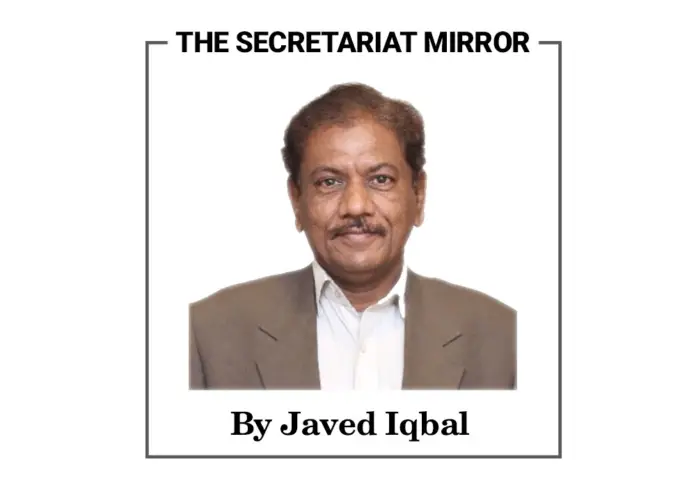When Senator Mushtaq Ahmed of the Jamaat-e-Islami (JI) raised a question over re-hiring of retired employees in the National Database and Registration Authority (NADRA), the reply he received only mentioned that there are around 1,400 employees in the authority.
Senator Mushtaq, referring to the Pakistan Bureau of Statistics, said that the number of unemployed youth is increasing while on the other hand, retired officers are getting jobs again. He said that many retired military officers have also been re-hired at the most important posts.
There is a common perception that the Anti-Narcotics Force, Earthquake Reconstruction and Rehabilitation Authority, Pakistan International Airlines, Naya Pakistan Housing Authority, Water and Power Development Authority, Civil Aviation Authority, Airport Security Force and National Disaster Management Authority have rehired retired heads to run their daily affairs.
Similarly, many posts that are usually held by civilians such as diplomats were later occupied by retired military personnel.
The senator besides raising the question related that the re-employment of retired people along with many perks is unfair to the educated youth, who are looking for jobs.
“We live in a strange country where even after 10 years of service people take a second job and then retire from both and get two pensions and then take up a third job,” said Dr. Shahnawaz.
Perhaps, Pakistan is the only country in the world where after retired military personnel are appointed to high positions in different civilian departments on high salaries. Among many, Punjab Ombudsman Major (r) Azam Sulaiman Khan and former NAB chairman Major (r) Qamar Zaman Chaudhry were drawing pensions from the army and then as civil officers.
Federal Public Service Commission Chairman Captain (r) Zahid Saeed, who was the Punjab chief secretary, got his job again in the FPSC as a member initially and then elevated to the chairman.
The Supreme Court of Pakistan had also observed that re-employing retired employees is a violation of the law as it not only prohibits the right to promotion of existing employees but also affects good governance.
When a government officer was spoken to in this regard, he said that the officers of the federal government work under the Civil Servants Act of 1973 and this does not impose any restrictions on re-employment. He asserted that the government can re-employ them in the larger national interest.
But at the same time, he said that in a society where there is no meritocracy, transparency and equal opportunities, it is not difficult to misuse this provision. In the second place, he said that the posting of officers on deputation is not a good example for other employees. He said that the recently transferred Punjab Finance Secretary Iftikhar Amjad occupied the cadre post.
Take the example of the American state of New York, where you cannot get a huge salary and pension together in the form of re-employment. However, there is some scope in some cases, he said.
In Pakistan, there are many institutions such as the Punjab Public Service Commission, Punjab Information Commission, Punjab Service Tribunal, Office of Ombudsperson, Punjab Commission on the Status of Women, Bonafide Commission-LDA and the Punjab Environmental Tribunal where retired officers are re-employed.
Punjab Education Foundation and BODs of other autonomous public sector bodies are in addition to them.
It should be noted that there are no strict criteria for joining the above-mentioned institutions so the purpose of establishing these institutions has been uneventful.
The higher the recommendation of the retired officer, the higher the post he can hold after retirement. It has become necessary that if transparency is to be maintained, merit should be raised. Only this will improve the service delivery. It would be better to devise a system of parliamentary oversight, like the one in America, besides giving access to the civil society, to devise a clear procedure for evaluating the performance, and people can also gauge their complaints properly and question the institutions as well. Under the current law, the US Senate does not require the commissions of all military officers to be confirmed; however, anyone who is first promoted to major in the regular army, Marine Corps, Air Force, or Space Force, or lieutenant commander in the Regular Navy, does require such confirmation.
One approach could be to hire officers reaching superannuation having two or three years of service, instead of hiring retired officers.
Punjab Chief Minister Chaudhry Parvez Elahi should either legislate on this matter immediately or form a committee comprising members of the civil society, media and parliamentarians to determine whether a candidate will provide justice to the people or not.
For example, the provincial ombudsman seems to be the only person who has a strong recommendation or a strong administrative background, then to be appointed as an advisor and consultant in the provincial ombudsman, only the approval of the provincial ombudsman is necessary, otherwise, there is apparently no merit. The same is the case with the Public Service Commission and other important service delivery institutions like the Punjab Information Commission, etc. We see retired federal secretaries and inspector generals of police and other services officers of grades 21 and 22 moving to these institutions after retirement and receiving huge salaries as well as perks and privileges.
It is also notified that the Punjab government has removed the Additional Chief Secretary Shahryar Sultan from the post and the ACS (Home) Department retired Asadullah Khan was once again given additional charge. It should be noted that Asadullah already has the additional charge of the director general of Anti-Corruption Establishment.
It seems a musical game is being played among the additional chief secretary, ACS (Home), and the chairman Planning and Development. Syed Ali Murtaza was posted as ACS (Home), and later he was posted as ACS (General). Once again he joined the Home Department as the head and was given additional charge of the ACS Punjab Office.
Later, Syed Ali Murtaza was transferred from the Home Department as OSD and Captain Asadullah was made home secretary. He was also given the additional charge of the ACS office.
Abdullah Khan Sumbal, who was Planning and Development Board chairman, was then posted as ACS Punjab. Sumbal had to report to P&D as he was replaced by Shehryar Sultan as ACS. Sultan, too, after a couple of days was removed from office. Now, Sumbal was assigned the additional charge of the CS office after Chief Secretary Kamran Ali Afzal was granted a two-week leave.
It is time for the government to focus on real problems of the people and stop playing the musical game of transfers and postings of officers who continue to enjoy important postings in Punjab but have failed to bring any socio-economic change at the grassroots. At least, there should be a policy whereby any top official can be posted to an important post and later removed for some reason. Secondly, the government should have full-time heads of important departments such as anti-corruption, etc. After talking to many officers, it can be concluded that a high-powered board be constituted to propose transfers and postings of officers. The board should also be authorized to ensure the tenure of the officers once posted. This body may also recommend directory retirement of those who failed to deliver repeatedly.







